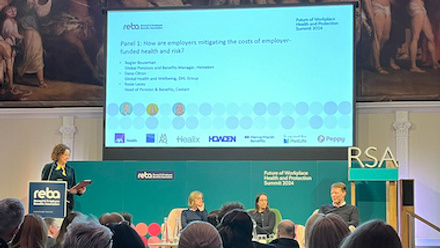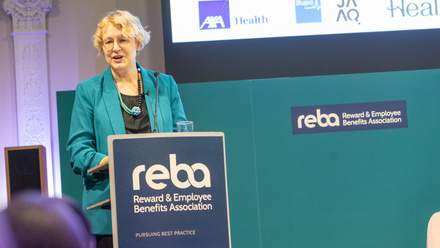Is the tide turning towards compulsion for employee wellbeing?

The latest policy paper launched by the Department of Health & Social Care, Prevention is better than cure: Our vision to help you live well for longer mirrors some of the rhetoric we’ve already seen in the Department for Work & Pensions’ Improving Lives: The Future of Work, Health and Disability roadmap, Good Work: the Taylor review of modern working practices, Thriving at work: the Stevenson/Farmer review of mental health and employers. All recognise that the workplace is a great place for disseminating messages, and that employers are well placed to make positive changes that will help improve the lives, health and happiness of their people.
Learning from the military
In his recent speech launching the policy paper, the Rt Hon Matt Hancock MP, Secretary of State for Health and Social Care refers to “employers playing a bigger role in helping their staff stay healthy and to return to health after illness.”
When holding up the military’s extraordinary rehabilitation achievement of an 85% return-to-work rate after serious injury he stated, “Civilian employers must do the same. Employers have a responsibility to help improve the health of their staff and the nation. Each of us has a stake in our health and care system so each of us has a responsibility to work together to build a sustainable system. So, I want us to be open to new ideas and learn from other countries.
“Take the Netherlands, for example, where companies must demonstrate due diligence in their approach to the rehabilitation of sick staff and helping employees return to work.”
If that’s not sending a message to employers to watch out for the turning tide, what is?
Government is increasingly moving responsibility for provision away from the state and towards a tri-partite effort between employers, individuals and the state.
In October 2018, the financial effect of absence from work due to mental health problems was debated in Westminster Hall*. Again, the role employers (and particularly SMEs) need to play was debated as becoming increasingly central, and Group Income Protection, in particular, was recognised as being a fundamental tool for employers to use to help them. Similarly, the role that Group Income Protection can play in helping employers achieve better outcomes in returning people to work was also recognised in the DWP’s Improving Lives Roadmap and the Stevenson/Farmer review.
How employers can achieve better outcomes for staff
So, there is some consistent messaging coming through from Government: firstly, that employers need to do more to support their people’s mental and physical health, to help them to make positive health changes and to better support them back to work; then secondly, that Group Income Protection is a positive way for employers to provide a financial safety net and to help their staff stay in or get back to work.
Ironically, Group Income Protection is often the unsung hero within the benefits package. Employers can, of course, self-fund long-term sick pay, vocational rehabilitation, treatment, counselling, modifications, etc but doing nothing may not be an option in the longer term so looking at introducing a basic level of Group Income Protection is a worthwhile exercise because it does so much more than just reimbursing an employer for their contractual promise to pay an employee during sickness absence.
- It can help people to stay in work by giving fast access to the help they need, such as timely physiotherapy, treatment, counselling or mediation.
- It provides a replacement income for any extended period off work or if someone returns to work in a lower paid role or on reduced hours.
- Rehabilitation support continues even after a claim is in payment so that people are able to return to work when they are ready and are not forgotten about.
- The rehabilitation advice made available to employers can help them with understanding the reasonable adjustments they might need to make to meet their obligations under the Equality Act.
- Through intervening early on in an absence, it reduces the length and therefore the cost of an absence for employers and Government.
- It improves productivity by supporting people both through every-day distractions and more serious crises via employee assistance programmes, access to talking therapies and mental health support.
- It can even include support to help with encouraging better health behaviours through wearables and apps.
Be prepared
Not only that, but, for employers and line managers, group risk support can include HR and employment law advice, help with difficult situations, mental health first-aid training, mediation and more. So employers with Group Income Protection in place will be well prepared for the turning tide as much of what will be required of them over the next few years will already be in place.
Katharine Moxham is spokesperson for Group Risk Development (GRiD), the industry body for the group risk protection sector.
*Please scroll down to 4.30pm Mental Health Absence from Work






